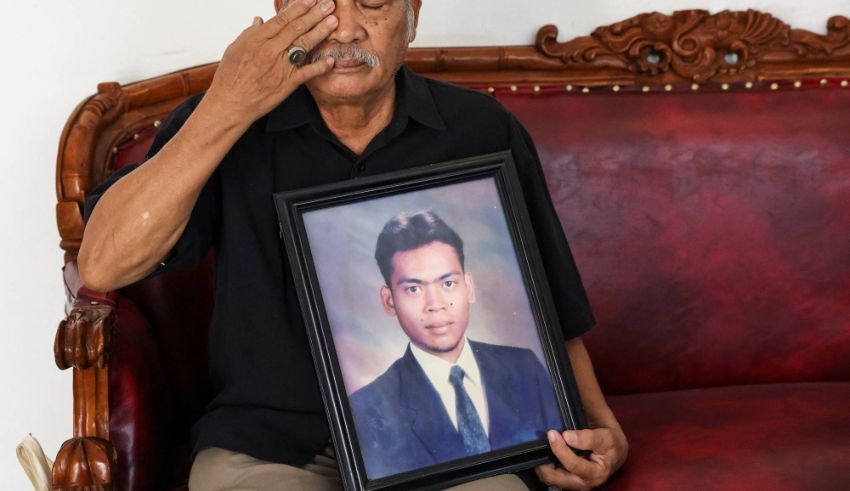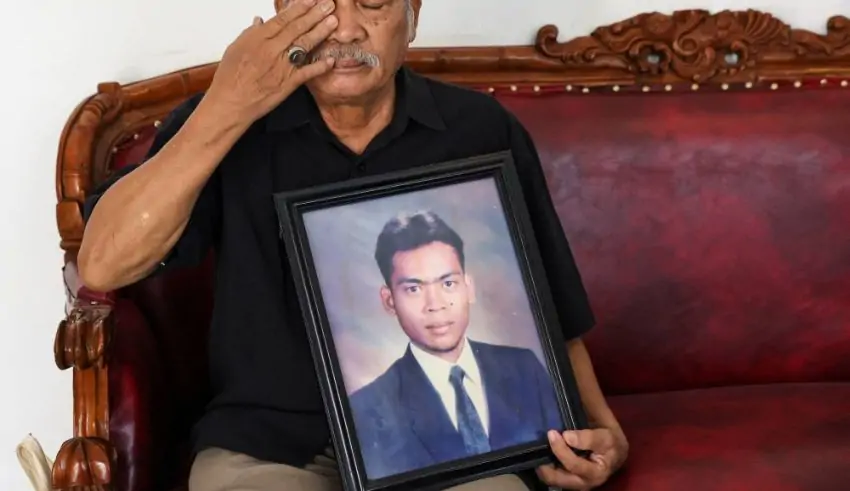

(C) The Japan Times
Prabowo Subianto, the former military general and the likely new president of Indonesia, has a dark and controversial past that haunts many families of the disappeared. Prabowo is accused of being responsible for the abduction, torture, and killing of several pro-democracy activists during the 1998 riots that led to the fall of the authoritarian regime of Suharto, his former father-in-law and mentor.
According to a report by the National Commission on Human Rights (Komnas HAM), Prabowo and his subordinates from the Special Forces Command (Kopassus) were involved in the kidnapping of 23 activists, who were held in secret detention centers and subjected to brutal interrogation and abuse. Of the 23, some survived, one died, and 13 remain missing to this day.
Prabowo was dismissed from the military in 1998, amid the allegations of human rights violations, but he never faced trial or accountability for his actions. He has always denied any wrongdoing, and has claimed that he was acting under orders and following the law.
The families of the disappeared have been seeking justice and closure for more than two decades, but their efforts have been met with silence and indifference from the authorities and the society. They have been holding weekly silent protests, known as Kamisan, in front of the presidential palace in Jakarta, demanding the government to acknowledge and investigate the cases of the disappeared, and to provide compensation and rehabilitation for the victims and their families.
The families have also been facing various challenges and difficulties, such as the lack of legal and financial support, the stigma and discrimination from the public, and the trauma and grief of losing their loved ones. Some of the families have also received threats and intimidation from unknown sources, who have warned them to stop their activism and to accept Prabowo’s presidency.
Prabowo’s presidency, which is expected to be confirmed by the official results in May, has raised concerns and fears among the human rights and democracy advocates in Indonesia, who worry that his rise to power will undermine the progress and achievements of the reformasi era, and will enable the return of the authoritarian and militaristic practices of the past.
Prabowo has promised to uphold the constitution and the rule of law, and to respect the human rights and the diversity of the Indonesian people. However, he has also shown signs of intolerance and populism, such as his alliance with hardline Islamic groups, his rhetoric against foreign interference and minority rights, and his admiration for strongman leaders such as Vladimir Putin and Xi Jinping.
The families of the disappeared, along with other human rights and democracy activists, have vowed to continue their struggle and to monitor and challenge Prabowo’s policies and actions, especially on the issues of accountability, justice, and reconciliation. They have also called on the international community and the civil society to support their cause and to pressure Prabowo to address the legacy and the reality of human rights abuses in Indonesia.
The fifth prisoner exchange took place on 6 May 2025 between Russia and Ukraine involving 205 prisoners and it is…
Established in the year 1921 and it still continues to showcase the legacy of this game through generations. This ‘Emperor’s…
The NBA Playoffs of 2025 would have much perdition during the matches of the second round. In the East, the…
Jimmy O.Yang, the Asian standup comedian established his name in the international stage and he is more popular among the…
Bill Gates of the Bill & Melinda Gates Foundation declared during the Philanthropy Asia Summit on May 5, 2025 that…
The game changer of the Netflix streaming is the South Korean nail biting survival thriller web series “Squid Game” and…
This website uses cookies.
Read More